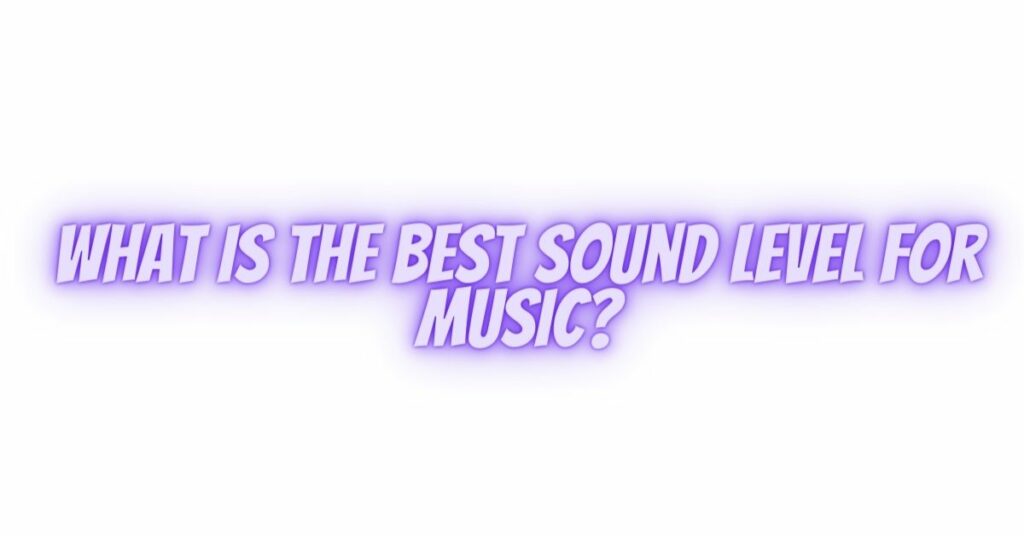The pursuit of the perfect sound level for music is an age-old quest that has captivated both audiophiles and musicians. Whether you’re a music enthusiast seeking the ultimate listening experience or a musician striving for the ideal live performance, finding the right sound level is crucial. In this article, we explore the factors that influence the ideal sound level for music and offer insights into achieving a harmonious balance.
The Subjectivity of Sound Level
Sound is a deeply subjective experience, and what constitutes the “best” sound level for music can vary significantly from person to person and situation to situation. Several factors influence our perception of sound levels in music:
1. Musical Genre and Context
Different musical genres and settings call for varying sound levels. For example, classical music in a concert hall demands a different level of precision and subtlety than a rock concert in a large arena. The ideal sound level should align with the genre, venue, and performance type.
2. Personal Preference
Individual preferences play a significant role in determining the ideal sound level. Some people enjoy the immersive experience of loud music, while others prefer a more subdued and intimate listening environment. Your personal taste and comfort should guide your choice of sound level.
3. Venue and Acoustics
The acoustics of the venue have a profound impact on the perception of sound. Large, open spaces may require higher sound levels to fill the area adequately, while smaller, acoustically treated rooms may provide better clarity at lower volumes.
4. Health and Safety
It’s essential to consider health and safety when determining sound levels. Prolonged exposure to high volumes can lead to hearing damage, so it’s crucial to avoid sound levels that are uncomfortably loud or harmful to your ears.
Recommended Sound Levels for Different Situations
While the ideal sound level for music can vary widely, here are some general guidelines for different musical contexts:
1. Home Listening: For casual listening at home, sound levels typically range between 60 and 80 decibels (dB). This range allows for an enjoyable listening experience without causing hearing damage.
2. Live Concerts: Concert sound levels vary depending on the genre and venue. Classical concerts often aim for sound levels around 85-95 dB, while rock concerts can exceed 100 dB. Ear protection is advisable at high-volume concerts to prevent hearing damage.
3. Studio Recording: In a recording studio, sound levels are carefully controlled to capture the nuances of the music. Levels can range from 70 to 90 dB, depending on the instruments and vocals being recorded.
4. Personal Preference: Ultimately, the ideal sound level for music is a matter of personal preference. Some people may enjoy the energy of loud music, while others prefer the intimacy of quieter listening.
Conclusion
The ideal sound level for music is a highly subjective concept, influenced by musical genre, personal preference, venue, and health considerations. Finding the perfect balance between volume and clarity is an ongoing journey, and it may vary from one situation to another. Whether you’re at a live concert, in a recording studio, or simply enjoying music at home, the key is to strike a balance that allows you to fully experience the music while safeguarding your hearing and comfort. Remember that the beauty of music lies not only in its sound level but in the emotional connection it creates.


